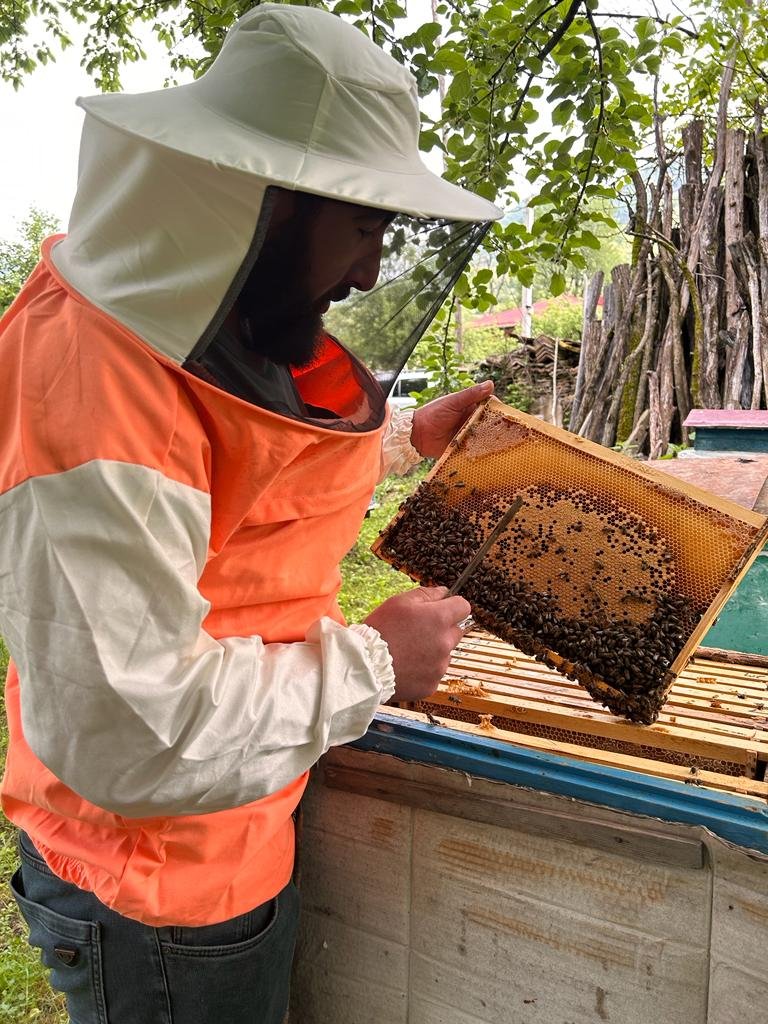Behaviour Science based study conducted by the Behavior Insights, Strategy, and Communication Partners (BISC Partners) under the project “Capacitated Agricultural Practices and Consumer Awareness (CAPCA)” presented the complex factors influencing honey and milk production practices in Georgia. Funded under the European Neighborhood Program for Agriculture and Rural Development (ENPARD IV) of the European Union, this research aims to determine the main motivators and barriers to the introduction of Geogap in milk and honey production.
Key findings from the study include:
Difficulties or challenges that drive the desire for change (PAINS):
-
- Lack of Agricultural Equipment: Many farmers face challenges due to equipment scarcity, which affects their ability to cultivate land and maintain high-quality milk production.
-
- Human Resource Challenges: A significant issue is the general lack of interest in farm work, impacting farm operations.
-
- Banking Relations: High interest rates from banks create financial hurdles for farmers, affecting their capacity to implement improved standards.
-
- Grant Application Issues: Farmers face difficulties in obtaining grants due to technical errors, lack of feedback, and a lack of diligence from banks.
-
- Sales channels: Farmers often struggle to find direct sales channels, while at the same time try to stay away from the wholesalers.
Perceived benefits of change (GAINS):
-
- Improved Product Quality: Farmers recognize that adopting the GEOGAP leads to products of improved quality, making them more competitive in the market.
-
- Access to New Markets: Dairy farmers expect to sell their products at higher prices and reach larger retailers and supermarkets with similar standards.
-
- Feeling of Security: Implementing Geogap standards can provide a sense of security and assurance, potentially leading to more support and assistance in the form of grants and programs.
-
- Efficiency: Implementing standards can lead to better resource use and reduced farm costs.
Habits and Existing Routines (COMFORTS) that are barrier to change:
-
- Family Business: Farming is perceived as a family business, and employment outside the family is considered derogatory.
Fears associated with change or new developments (ANXIETIES):
-
- Unrealistic Standards: Many farmers find the standards mandated by Geogap infeasible due to their financial constraints, lack of human resources, and absence of suitable laboratories for quality tests.
-
- Grant Application Discomforts: Farmers face difficulties related to proposal writing and paperwork when applying for grants, with many feeling overlooked in favour of already successful farmers.
Goals and aspirations, values of the change: Jobs To Be Done (JTBD):
-
- Functional: Want more income, save money, and optimize operations.
-
- Emotional: Want to feel assured, safeguard family traditions, and cherish the bond with animals.
-
- Social: Uphold family traditions, contribute to family prosperity, and achieve stable farming activity.
The study offers a set of recommendations for interested parties, including policymakers, governmental and non-governmental organizations. The recommendations focus on aligning the physical and social context with prevailing psychological factors, promoting a nurturing environment for farmers to embrace change easily.
The research underscores the importance of understanding the many-sided nature of farmers’ decisions and the need for tailored strategies to encourage the adoption of improved farming standards in Georgia. It also highlights the potential for leveraging behavioral science to drive positive change in agricultural practices.
Read the study summary in English

